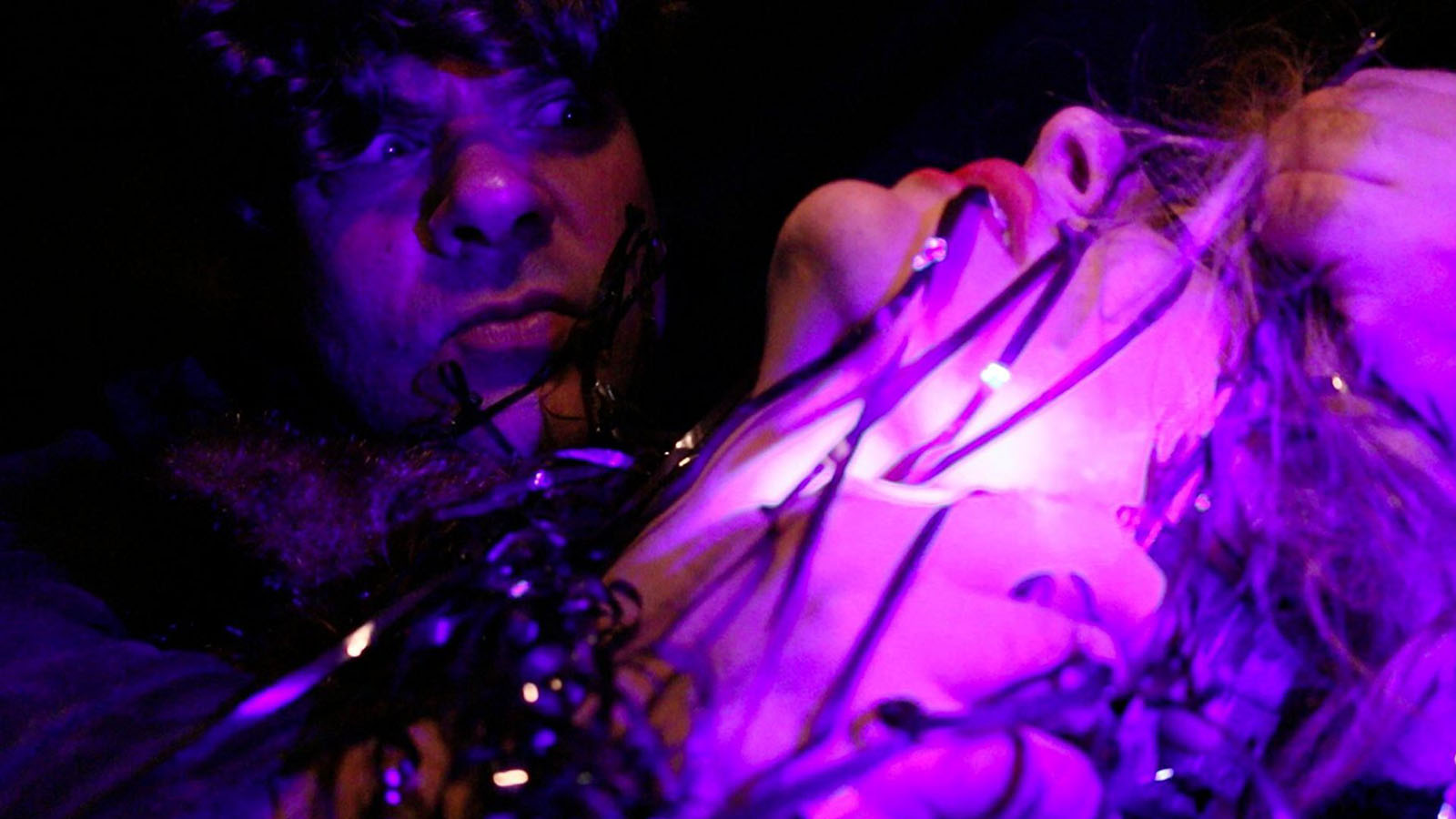
The TV is always on in Fatal Pulse, the most recent release from underground horror legend Damon Packard. Set in 1991, Packard’s 2018 film is drenched in pinkish-bluish gel lighting, a movie-world glow enveloping all in its path—especially antihero Trent Dupont (Mike Hickey, better known as comedian/musician Major Entertainer), a sleazy power player in the George H.W. Bush administration. After watching Andy Rooney (overdubbed by Steve Cattani) give a diatribe about yuppie culture on 60 Minutes, Trent starts hallucinating that he’s appearing in thriller trailers. While meeting with a colleague later on, Trent sits in front of a TV playing the James Spader vehicle Bad Influence and quotes its dialogue in real time, as if it made all the sense in the world.
In a way, the cheesy lines do make sense out of context since it’s basically stock dialogue—and although Trent’s wire-rimmed glasses and light hair are a close match for Spader’s, they also summon an entire genre of preppy, blank-slate male leads. In this way, Fatal Pulse goes beyond name-checking to refract everything through the tint of late ’80s and early ’90s entertainment: one of the filming locations is the mansion from Less Than Zero; look-alike actors fill in for Julia Roberts (Kimberly Howard), Sade (Savannah Thomas), and William Friedkin (Cattani again, a hilarious impressionist); and at one point, two characters recite the earworm tagline “Ch-Ch-Ch-Chia” back and forth to each other, varying the inflections almost as if it added up to a real conversation—almost. Even the title Fatal Pulse is lifted from an ’80s stalker movie starring Martin Sheen’s brother Joe Estevez.
All of this referentiality is both playful and central to Packard’s outlook on the film industry. His earlier films craft a deliriously unsettling form of whiplash from pop-cultural detritus, especially 2002’s Reflections of Evil, in which Packard plays a binge eater dying from sucrose intolerance and beset by visions of Los Angeles as a misanthropic hellscape. The film’s unsettling, man-on-the-street aesthetic suggests The Eric Andre Show if it were directed by Alan Clarke, but Reflections of Evil eclectically mixes moods. After an overdubbed TCM-style introduction from Tony Curtis, it leaps through stylistic homages to ’60s and ’70s horror cinema, blocks of vintage commercials, and a jaunt on the E.T. ride at Universal Studios that landed Packard a lifetime ban from the park. As desolate as modernity seems in the film, Packard still takes perverse pleasure in shoving the pop archive through a contemporary blender.
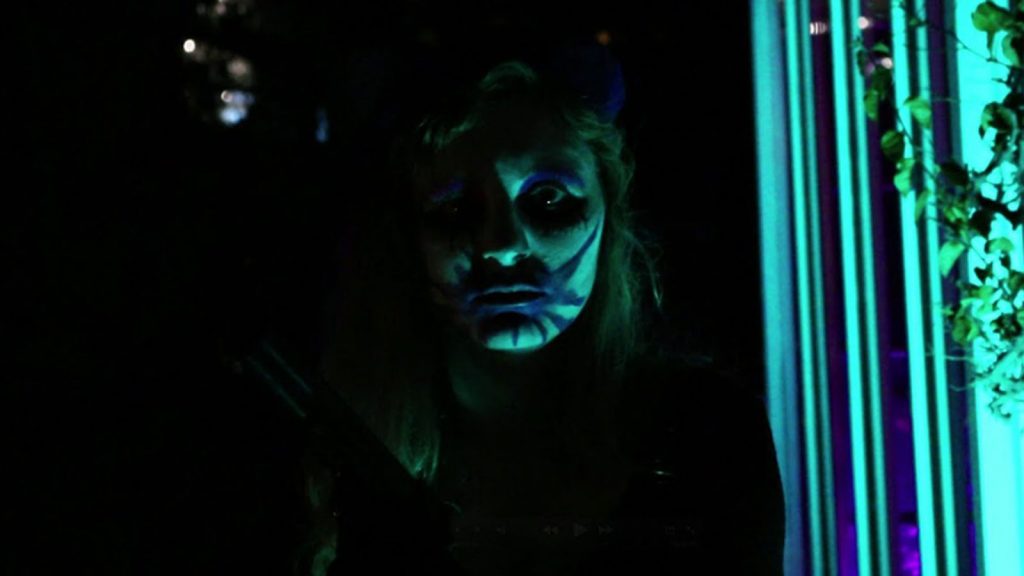
Fatal Pulse is a horror movie about hyper-commercialization; when he’s not a voice in Dick Cheney’s earpiece, Trent is also the mastermind behind Cineplex Odeon and enlists Rhonda Shear (Victoria Anne Greenwood), the host of USA Network’s B-movie showcase Up All Night, as a government hit woman. But this is where Packard’s horror instincts come back to haunt the masters of the universe, poking holes in their consolidation schemes. Whenever the characters leave their glass castles, they are chased through L.A.’s billboard-lit streets by break-dancers, slinky Morphsuited figures, and dumpster-dwelling blob creatures straight out of Frank Henenlotter. Comparisons to Inland Empire are apt, but Packard’s visuals are zanier and even heavier on the facial distortions—most memorably, he turns people’s eyes into inky, Margaret Keane–ish pools. Part of Packard’s charm is his expertise with wielding low-budget digital effects, especially in an age when millions of dollars are thrown toward awful photorealist CGI (that is, toward the executives profiting off it). In contrast, every effect in Fatal Pulse has a practical and homegrown look, from a gnarly facial whirlpool to literally handcrafted puppetry at the film’s climax.
It’s a testament to Packard’s abrasive humor and visual panache that he’s able to make disorienting poetry from a loop of two characters yelling “sampling.” Although Trent’s circle proclaims that they’re remaking the world by sampling reality, they’re only repurposing schlocky thriller tropes in interchangeable remakes. But the hip-hop tracks that play over these nighttime chase scenes used sampling for artistic ends, notably a pointed drop from Public Enemy, whose anti-corporate sentiment actually found a major-label platform for reaching a mass audience. Thirty years later, carving out a space for underground work like Packard’s to get seen has grown more difficult, even in midnight-movie circles; Fatal Pulse was fully funded on Kickstarter over four years. But Packard, too, succeeds in making something idiosyncratic with found materials—and if he can have his own absurd revenge on the CEOs in the process, that’s its own kind of reward. 🩸
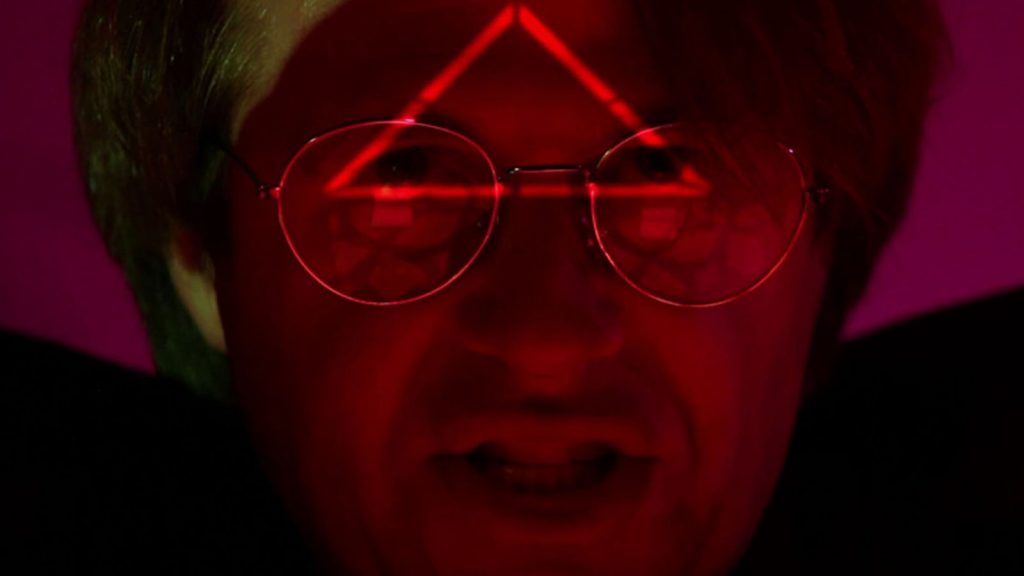
is the Contributing Editor at Le Cinéma Club. She writes regularly for Reverse Shot and Screen Slate, with additional bylines in Cinema Scope, Film Comment, Vulture, and the Los Angeles Review of Books.
The opening image of David Cronenberg’s Crimes of the Future is arresting, enigmatic, exquisite, revealing an enormous capsized ship...
BY JOSÉ TEODORO | June 7, 2022
We go to the movies to see ghosts, whether they be the likenesses of long-gone actors, objects, or edifices, or the suggestion of specters imprinted in the gloom of otherwise benign images. Photography beguiles us with the promise of representing reality, but from the start, it accommodated the phantasmagoric.
BY JOSÉ TEODORO | February 2, 2023
Produced during the cultural thaw that immediately followed the end of the Franco dictatorship, Basque writer-director and designer Iván Zulueta’s 1979 feature Arrebato (Rapture) erupts like a massive discharge of so much repressed anxiety and desire.
BY JOSÉ TEODORO | October 31, 2021
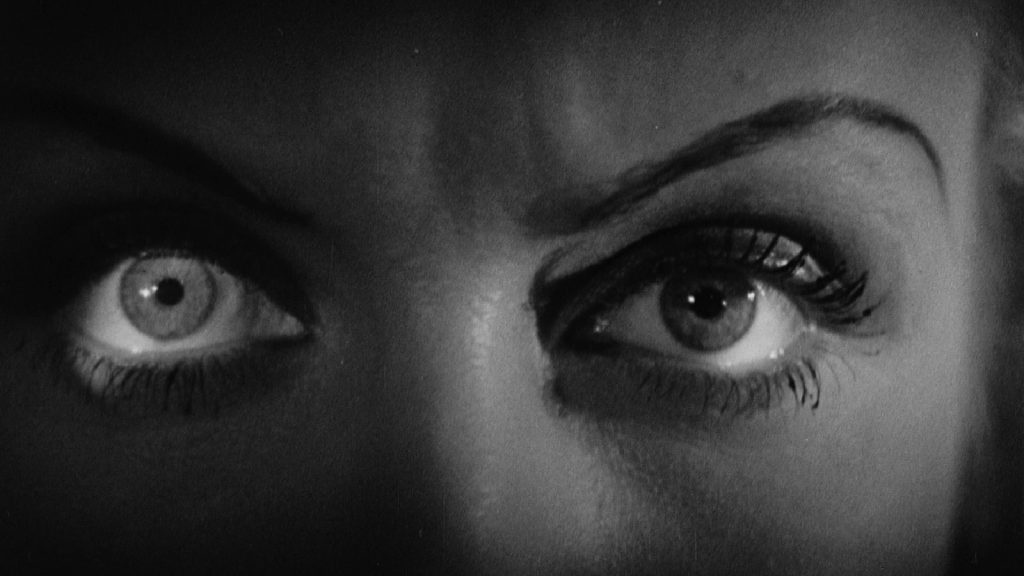
This pre-Code offering packs a lot of story into its typically brisk running time, with several plot threads weaving together a (not always successful) tapestry of spooky and criminal doings.
READ MORE >
BY ANN OLSSON | Month 00, 2021
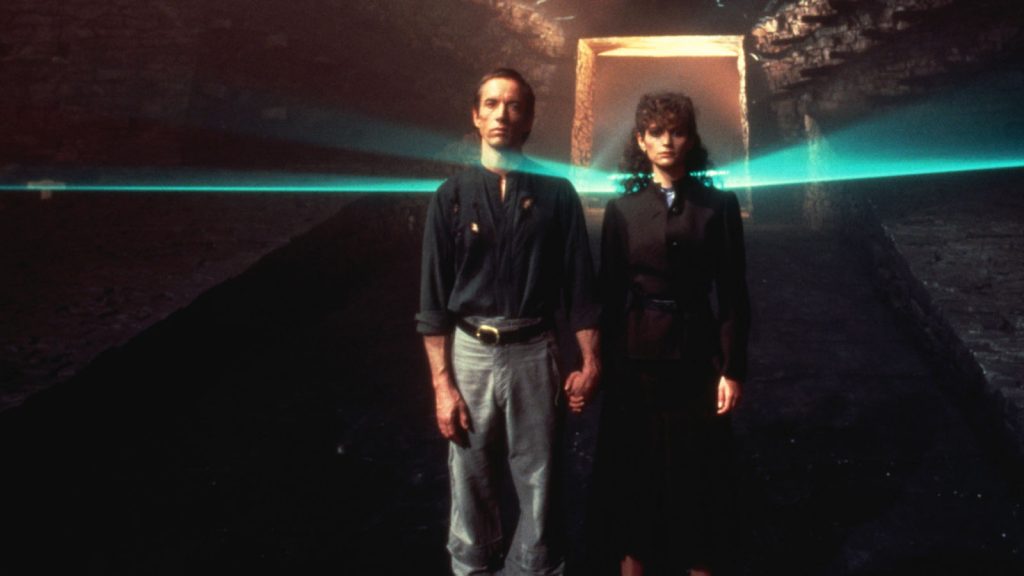
In what could be the fastest-resulting rape revenge movie, a drunken lout brutally forces himself on Ida, the young woman who doesn't return his affections, during a party over Labor Day.
READ MORE >
BY LAURA KERN | Month 00, 2021
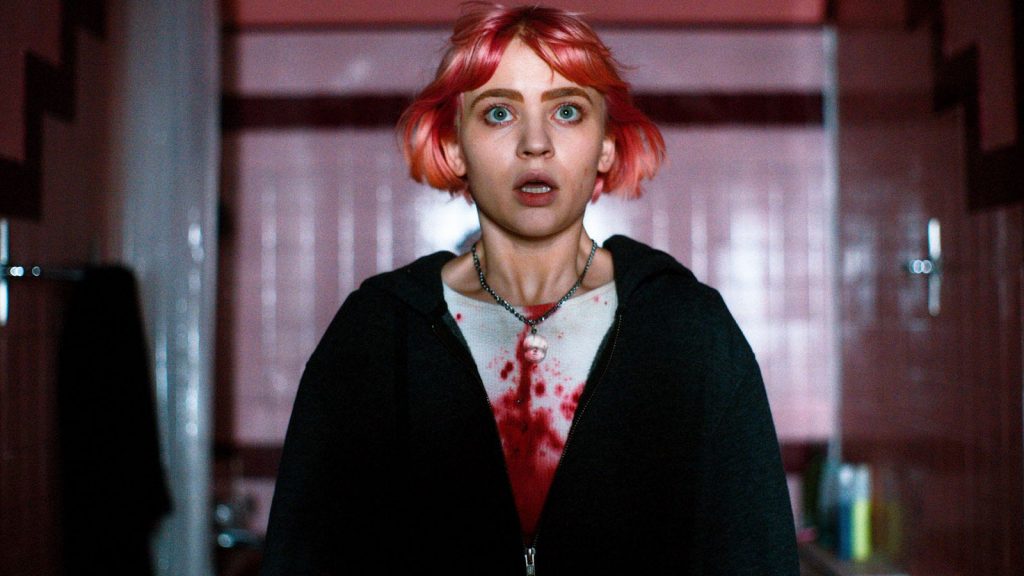
Beast is a lot of movies in one package - fractured fairy tale, belated-coming-of-age story, psychological drama, regional horror film - but above all it's a calling card for its leading lady, Jessie Buckley.
READ MORE >
BY LAURA KERN | Month 00, 2021